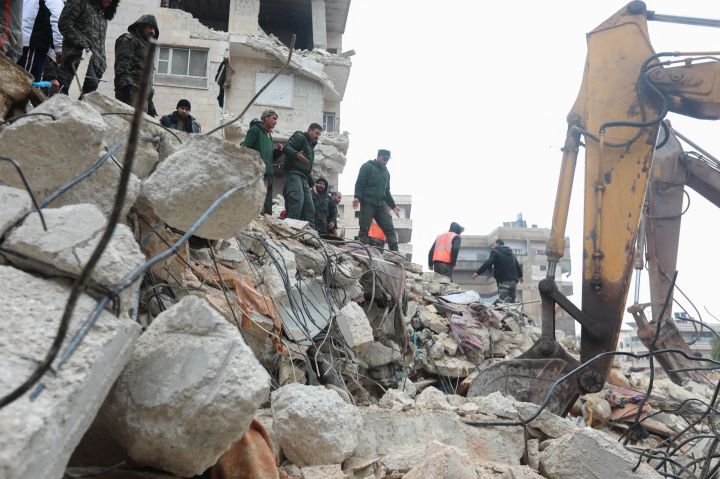
Why U.S. dollars are a growing form of international aid

After the recent devastating earthquake in Syria, aid organizations are providing canned food, health care and, notably, cash.
One hundred and fifty dollars — denominated in the U.S. currency — that’s the amount the International Rescue Committee, a nongovernmental organization, has started distributing to households in northern Syria that were displaced by the temblor.
“It basically allows a family of six members to survive” for at least a month, said Elias Abu Ata of the IRC.
That family could buy everything in what’s called the survival minimum expenditure basket. This theoretical basket “contains bread, chicken, eggs, oil, soap, sanitary pads, phone data — it’s comprehensive,” Abu Ata said.
The reason behind giving cash instead of actual eggs or phone data is that it empowers people to buy what they need.
Some might want fewer eggs and more phone data. Also, it’s often faster to send cash than eggs.
“When these disasters happen, cash actually takes on a greater level of resonance and significance because of the speed with which assistance can be distributed,” said Jacob Kurtzer with the Center for Strategic and International Studies.
There are some crises, like famines, Kurtzer said, that require food from outside sources.
However, in places where there are goods and local merchants to sell them, cash “can support ongoing economic activity, as opposed to introducing new commodities from outside an area,” he said.
Despite the benefits, some humanitarian groups are still reluctant to distribute cash. Simon Levine, who researches humanitarian policy for the think tank ODI, cited one major problem.
“We don’t like to let go,” Levine said, laughing. “We are afraid that people won’t use it for the purposes that we want.”
But, Levine said, it’s important not to rob people of the power to make a choice after they’ve already lost so much.
There’s a lot happening in the world. Through it all, Marketplace is here for you.
You rely on Marketplace to break down the world’s events and tell you how it affects you in a fact-based, approachable way. We rely on your financial support to keep making that possible.
Your donation today powers the independent journalism that you rely on. For just $5/month, you can help sustain Marketplace so we can keep reporting on the things that matter to you.

















